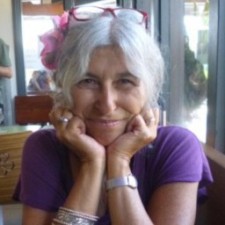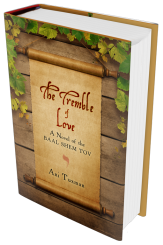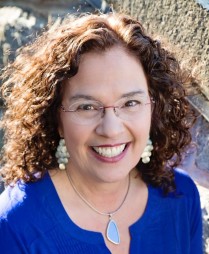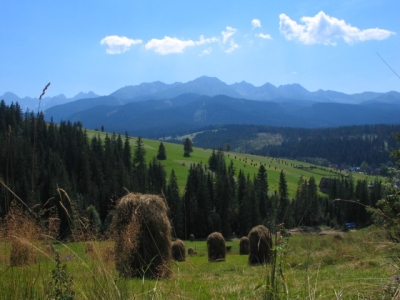 Never has it been more difficult for me to affirm that “love trumps hate” as during this unprecedented United States election season. After watching the Republican Convention last July in mute horror, I took to bed for several days, overwhelmed by the presentiment that everyone–blacks, women, Jews, Latinos, Muslims, queers– other than a certain breed of white American males was doomed to shameless malignment and persecution. The palpable hatred in Donald Trump’s acceptance speech seared me, arousing my ancestral memory of various persecutions of Jews, Muslims, and others–not something I usually think about or choose to foreground. For several months now, I have been haunted (and almost paralyzed) by fear.
Never has it been more difficult for me to affirm that “love trumps hate” as during this unprecedented United States election season. After watching the Republican Convention last July in mute horror, I took to bed for several days, overwhelmed by the presentiment that everyone–blacks, women, Jews, Latinos, Muslims, queers– other than a certain breed of white American males was doomed to shameless malignment and persecution. The palpable hatred in Donald Trump’s acceptance speech seared me, arousing my ancestral memory of various persecutions of Jews, Muslims, and others–not something I usually think about or choose to foreground. For several months now, I have been haunted (and almost paralyzed) by fear.
 Hence Ani Tuzman’s The Tremble of Love: A Novel of the Baal Shem Tov has come as an especially welcome, healing antidote, affirming as it does the power of “unshakeable faith even in the presence of inhumanity” (473). I cannot say that I fully have such faith, but this novel, if anything can, leads me towards it. Page after page is filled with compelling examples of love’s power to disarm hatred and assuage pain.
Hence Ani Tuzman’s The Tremble of Love: A Novel of the Baal Shem Tov has come as an especially welcome, healing antidote, affirming as it does the power of “unshakeable faith even in the presence of inhumanity” (473). I cannot say that I fully have such faith, but this novel, if anything can, leads me towards it. Page after page is filled with compelling examples of love’s power to disarm hatred and assuage pain.
Early on, a tale is told of a young man fearlessly facing three would-be highwaymen who have stopped the wagon in which he is riding with a rabbi’s wife and her three children, one of whom is disabled:
“For your own sake, do not harm them. What harm you do will be returned to you a thousandfold.” A fearless certainty had possessed him, his own voice almost unrecognizable. . .
Meeting his challenger’s gaze, Yisroel did not move or speak. What he’d said earlier had been given to him; but no words came now. Instead, a mounting, forceful compassion enveloped Yisroel. He felt it flow from his eyes and unmoving limbs toward the furious man whose arm remained raised.
“Put him in his place,” cheered the one-eyed thief hoarsely.
Instead the large man lowered his broad hand, suddenly appearing to have forgotten his reason for raising it.
“Go home,” Yisroel spoke quietly. “Revive yourself as men. You are not ruthless thieves.”
Disarmed without having been touched, the abashed leader looked confused. (116-17)
Such simple yet miraculous tales abound throughout the novel, each one distinctive and persuasive.
The Baal Shem Tov–Rabbi Yisroel ben Eliezar, the “Good Master of the Name,” the founder of the Hasidic sect of Judaism–was born in 1698 in the Podolia Region of the Polish-Lithuanian Commonwealth (currently western Ukraine). Orphaned at the age of six, he spent his early years as a kind of wild child, “untamable” in the eyes of his community (8). In Tuzman’s inspired telling, at the age of nine he comes under the influence of an illiterate old wisewoman, Alta Bina, who lives alone in the forest and teaches her ward the healing properties of plants and how “each part of creation blesses the world, even the beetles nibbling holes in the leaves of the Alta’s cherished plants” (16).
Early on, then, Yisroel (or Srolik as he is called as a youth), appreciates both human women and the Divine Feminine; later, when he is initiated into the study of Torah and Kabbalah, he learns to name “God’s Indwelling Presence” Shechina and becomes a devoted supporter of women’s rights: cherishing his wife Channa with tenderness and passion, and encouraging his daughter and female disciples to study and teach. When I asked Tuzman about the factual accuracy of this aspect of her carefully researched–and deeply meditated–historical novel, she told me:
Nothing has been explicitly written about this. But you and I know that the hunger to learn, sisterhood among women, a woman’s great ability to serve, have ALWAYS existed. And we also know the true history of women; their lives and roles have been left out of most historical accounts in general.
There is nothing written about women disciples. But the Rebbe’s “equal vision” can be gleaned from the legends, including his profound respect for woman as the embodiment of the Shechinah.
-

Author Ani Tuzman
I am persuaded by Tuzman’s vision, having come to know and believe in the reality of her female characters–Channa, Rifka, Leya, Dalia, Zofia–along with all the males.
Tuzman’s Rebbe is an appealing figure, embodying a Judaism that, more than anything, recalls for me the Goddess thealogy of Carol P. Christ. Is this the Judaism of contemporary Hasidim? From what I understand, not exactly. Have the followers of this Realized Master ossified his teachings and lost touch with their original inspiration? This would not be the first time. Is the novel truer to the actual teachings of the Baal Shem Tov? I cannot know for certain, though, once again, I am inclined to trust Tuzman.
Perhaps the loveliest part of the novel recounts the years that Yisroel and his wife and young family spend living in a remote inn in the Carpathian Mountains. Tuzman presents this segment of Yisroel’s life as a necessary bucolic idyll, with both Channa and Yisroel revellng in nature even as Yisroel becomes known as a healer and devout worshipper of an omnipresent Divinity, less interested in laws than in love.

As Tuzman details the development of the Baal Shem Tov’s identity–from wild child to beloved husband, father, and teacher–she also carefully limns the political and social backdrop against which his teachings acquired their meaning and power. In early eighteenth-century Eastern Europe, Jews were still reeling from the 1648 Chmielnicki massacres when perhaps 100,000 Jews were killed. Atrocities against Jews were part of living memory, as were daily suffering, poverty, and the danger of being accused of “blood libel.” In such a context, numerous false (and sometimes blasphemous) messiahs arose, including Shabtai Tzvi and Jacob Frank; yet what the Baal Shem Tov offered was neither easy salvation nor the worship of himself as a deliverer. Rather, he demonstrated the healing power of love, acquired through deep meditation and self-compassion; he taught that death is “neither curse nor punishment” but “return to the Oneness” (371).
The daughter of Holocaust survivors, Ani Tuzman–a poet and women’s writing coach–began as a child writing to an invisible companion, filling page after page with her questions about a world darkened by the shadow of the Holocaust. But, she says, “there was also the ecstasy of rain, the dance of the willow in the wind, the stars illumining the night sky.” Writing, “in the silent, unconditional embrace of nature” became her “path to the light.” In The Tremble of Love, she has invited her readers to walk along that path with her, drawing us into a luminous world where “the stars are counted and named each day” (143), and where the “benevolent Source of life” (211) encourages us to love ourselves and all those who might wish to harm us.
I’ll be making phone calls for Hillary next week
Joyce Zonana is the author of a memoir, Dream Homes: From Cairo to Katrina, An Exile’s Journey. After participating in the Goddess Pilgrimage to Crete in 1997, she served for a time as Co-Director of the Ariadne Institute for the Study of Myth and Ritual. She lives in Brooklyn where she teaches yoga at Yoga in Bay Ridge, and is currently completing a translation of Henri Bosco’s Malicroix.


The Baal Shem Tov inspired Martin Buber who wrote I and Thou, who in turn inspired me, thee, and many other feminists in religion! Sounds like a fascinating book.
LikeLike
It’s always good to reconnect with our Sources! I think you would enjoy the book, Carol.
LikeLike
I think this is a book I want to read. I’m going to look for it on Amazon now. I’ve read a bit about the history of the Jews in medieval Europe, but all I’ve seen are very sad stories. I’ve heard of the Baal Shem Tov, but know very little about him.
I, too, find The Donald terrifying in his hatred of everything that is not himself. Good luck with your phone calls.
LikeLike
Thanks Barbara. It’s a very worthwhile book. Enjoy!
LikeLike
I have a book with some quotes from Baal Shem Tov that inspire me. Must get it out and re-read while waiting for a copy of this book! Thanks so much, Joyce.
I recently read about the “bots” that are flooding social media with false information about candidates in the US election. I believe nothing except that the media thrives on negative stories, not stories of love. We all have to look beyond, to those not in the spotlights.
Be brave.
LikeLike
“We all have to look beyond, to those not in the spotlights.” I find that comment moving and true, Barbara.
LikeLike
Thanks Barbara! I too want to read more about the Baal Shem Tov, whom I had never thought about until now.
LikeLike
Thank you, Joyce, for a beautifully tuned in and well-wrought review of The Tremble of Love: A Novel of the Baal Shem Tov! Your heart-mind is so aligned with the heart of the novel.
Note: For those who may be interested: as of this posting, the paperback is available (and only on Amazon). All three editions: hardcover, paperback and eBook editions of the novel will be available on Amazon and other online retailers such as Indiebound, etc. and through local bookstores before Thanksgiving.
Also, I would LOVE to be in touch with readers through my site http://www.anituzman.com (a more robust, interactive author site will be live shortly) and through my Facebook author page.
Again, thank you, Joyce. This is the novel’s first official review and such a wonderful welcome upon its birth and journey into the world.
LikeLike
Beautiful beautiful review! So true to my own experience of reading this magnificent book.
LikeLike
Since you mention my theology in relation to the BST, I would add that I believe that love can trump hate, not that it always or inevitably will. I believe Goddess is loving, but not all-powerful, which means that we must play our roles as well. I suspect this is what the BST believed.
LikeLike
Beautiful, Carol. Thank you for this reflection.
Yes, one of the reminders in the novel is that we are the ears and eyes, the hands and voices of God/Goddess/Source/the Shechinah—of the Love that is the Source of all. We manifest that Love in our actions, our words—even in our thoughts before they become actions or words. We are, as you reflect, the instruments of that Power in our world(s).
LikeLike